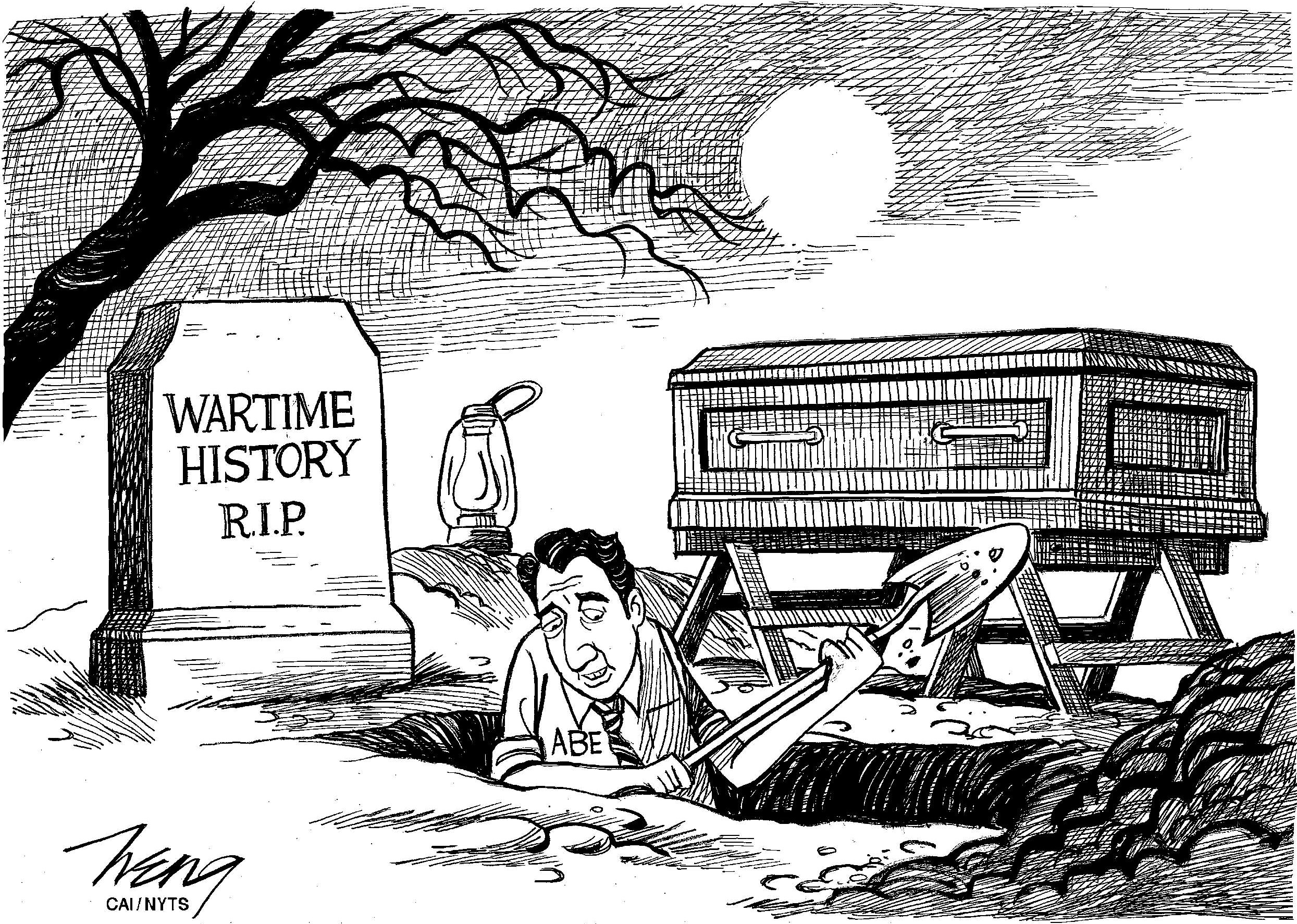As Japan greeted the 70th anniversary of its defeat in World War II in the midst of growing opposition to the government-proposed security legislation, Prime Minister Shinzo Abe must have realized that he has to run his administration under a variety of constraints.
One such constraint is international opinion. Initially, Abe appeared resolved to issue a war anniversary statement that reflected his own perception of Japan's modern history. However, it was obvious that a right-wing viewpoint of history, which tends to deny Japan's responsibility for its aggression and colonial rule, would not be acceptable not just to Asian countries but also to Western nations. For Japan to live as a member of the international community, the prime minister could not choose to publicize a self-righteous perception of history.
As a result, the statement that Abe made on Aug. 14 deviated from his own personal sentiments and its message became weak because of its lengthy text. The prime minister did use an expression that apparently reflected his own thought — that Japan must not let its future generations be predestined to apologize for that war, with which they have nothing to do. He may have wanted to dispel the chagrin at having had to refer in the statement to the wartime aggression and the "women behind the battlefields whose honor and dignity were severely injured."


















With your current subscription plan you can comment on stories. However, before writing your first comment, please create a display name in the Profile section of your subscriber account page.